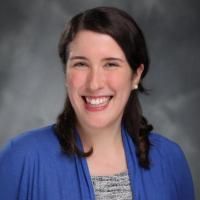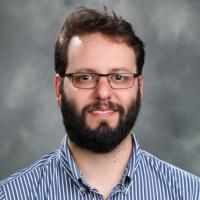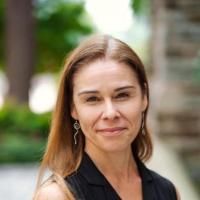Availability of post-hospital services supporting community reintegration for children with identified surgical need in Uganda.
Date
2018-09-20
Journal Title
Journal ISSN
Volume Title
Repository Usage Stats
views
downloads
Citation Stats
Abstract
BACKGROUND:Community services and supports are essential for children transitioning home to recover from the hospital after surgery. This study assessed the availability and geographic capacity of rehabilitation, assistive devices, familial support, and school reintegration programs for school-aged children in Uganda with identified surgical need. METHODS:This study assessed the geographic epidemiology and spatial analysis of resource availability in communities in Uganda. Participants were children with identified surgical need using the Surgeons OverSeas Assessment of Surgical need (SOSAS). Community-based resources available to children and adolescents after surgery in Uganda were identified using publicly available data sources and searching for resources through consultation with in-country collaborators We sought resources available in all geographic regions for a variety of services. RESULTS:Of 1082 individuals surveyed aged 5 to 14 yearsr, 6.2% had identified surgical needs. Pediatric surgical conditions were most prevalent in the Northern and Central regions of Uganda. Of the 151 community-based services identified, availability was greatest in the Central region and least in the Northern region, regardless of type. Assuming 30% of children with surgical needs will need services, a maximum of 50.1% of these children would have access to the needed services in the extensive capacity estimates, while only 10.0% would have access in the minimal capacity estimates. The capacity varied dramatically by region with the Northern region having much lower capacity in all scenarios as compared to the Central, Eastern, or Western regions. CONCLUSIONS:Our study found that beyond the city of Kampala in the Central region, community-based services were severely lacking for school-aged children in Uganda. Increased pediatric surgical capacity to additional hospitals in Uganda will need to be met with increased availability and access to community-based services to support recovery and community re-integration.
Type
Department
Description
Provenance
Citation
Permalink
Published Version (Please cite this version)
Publication Info
Smith, Emily R, Brittney J van de Water, Anna Martin, Sarah Jean Barton, Jasmine Seider, Christopher Fitzgibbon, Mathama Malakha Bility, Nelia Ekeji, et al. (2018). Availability of post-hospital services supporting community reintegration for children with identified surgical need in Uganda. BMC health services research, 18(1). p. 727. 10.1186/s12913-018-3510-2 Retrieved from https://hdl.handle.net/10161/19722.
This is constructed from limited available data and may be imprecise. To cite this article, please review & use the official citation provided by the journal.
Collections
Scholars@Duke

Emily R Smith
Emily Smith, PhD, is an Assistant Professor at Duke University with research interests including children’s global surgery, poverty metrics, health economics, and global health policy. As an epidemiologist, she has worked with her in-country partners at the Edna Adan Hospital in Somaliland for the past 5 years on projects related to children’s surgical care, including defining the epidemiologic burden, assessing poverty trajectories among families with a child’s surgical need, geospatial analyses, and healthcare infrastructure. Prior to DGHI, her work at the University of North Carolina–Chapel Hill (UNC-CH) involved utilizing epidemiological methods, mathematical modeling techniques and cost-effectiveness research to determine effectiveness of various testing strategies among HIV exposed infants in sub-Saharan Africa.

Sarah Jean Barton
Program Director; Assistant Professor of Orthopaedic Surgery; Assistant Professor of Theological Ethics, Duke Divinity School
I hold a dual appointment in the School of Medicine and Duke Divinity School. My primary areas of scholarship include Christian theology and ethics, disability studies, accessible education, and occupational therapy. I focus on participatory research methodologies in partnership with people experiencing intellectual disabilities as well as educational research on access.
You can order my book, Becoming the Baptized Body: Disability and the Practice of Christian Community, from Baylor University Press or your local bookstore!
Education
Doctor of Theology
Certificate in Reflective and Faithful Teaching
Duke Divinity School (Durham, NC, USA), 2014 - 2019
Master of Theological Studies
summa cum laude, Certificate in Anglican Studies
Duke Divinity School (Durham, NC, USA), 2012-2014
Master of Science
Occupational Therapy, Pi Theta Epsilon
Boston University (Boston, MA, USA), 2009-2012
Bachelor of Science
magna cum laude, Biology
Seattle Pacific University (Seattle, WA, USA), 2005-2009

Joao Ricardo Nickenig Vissoci
Joao Ricardo Nickenig Vissoci, MSc, PhD is an Assistant Professor of Emergency Medicine, Neurosurgery and Global Health. He is the Chief of the Division of Translational Health Sciences in the Department of Emergency Medicine, co-Director of the Global Emergency Medicine Innovation and Implementation (GEMINI) Research Center and a faculty member of the Research Design and Analysis Core (RDAC) in the Duke Global Health Institute. Dr. Vissoci has a background in social psychology and data science. Dr. Vissoci, a Brazilian native, earned a bachelor’s degree in Psychology from State University of Maringá/Brazil, a Masters in Physical Education, an MBA in Human Resources, and a PhD in Social Psychology. During his PhD, he completed a fellowship in Data Science at Duke University. After graduating his PhD in Social Psychology from the Pontificia Universidade Católica of São Paulo/Brazil, Dr. Vissoci completed a postdoctoral fellowship at the University of Sao Paulo (2015) in Design and Analysis for Mental Health research. He completed a second postdoctoral fellowship at the Duke Global Health Institute in Global Health and Data Science in 2016. Dr. Vissoci held a faculty position and taught Public Health and Health Sciences in Brazil from 2009 to 2015. After completing his fellowship at DGHI, he joined the Duke Department of Emergency Medicine as faculty in 2017. In his last 14 years as faculty (2009-current), he has mentored over 200 trainees at all levels of training from undergraduate, graduate, medical education, postdoctoral to faculty level. He has published over 200 manuscripts and collaborated on over 6 R-level NIH grants, multiple (K and D) NIH training grants, other federal grants UK/Brazil based, and foundational grants.
His research interests focus on leveraging data through analytics and technology to bridge the gap in access and equity in care in low resource settings, translating evidence into practice or policy impact. He uses data science and mixed-methods research to design and implement innovative data-driven solutions to address health care gaps.

Michael Martin Haglund
My clinical areas of expertise include spinal surgery, especially cervical spine surgery where I have performed almost 8,300 cervical spine procedures and recently was ranked the top cervical spine surgeon in the country by MPIRICA (an analytical company that reviews surgical outcomes). I believe the whole patient is important and we emphasize time with the patient and careful discussions regarding possible surgery. Our excellent results are due to a great team of physicians, nurses, CRNAs, and anesthesiologists. I also believe in the spiritual side in taking care of my patients. As a design surgeon we are developing better ways to treat cervical spine disease through innovative approaches to the cervical spine.
Through my Masters in Academic Medicine degree, I developed the Surgical Autonomy Program which is now used in 7 Neurosurgery Programs across the country and is an innovative way to teach, assess, and provide feedback to residents in the intraoperative environment. Over the last twelve years we have developed the first ever Division of Global Neurosurgery and Neurology (launched in 2014), where I serve as the Division Chief and the Division boasts over 100 members including faculty, graduate and medical students, undergraduate students and an outstanding staff of researchers, most located in the Duke Global Health Institute. The Division has published over 120 manuscripts between 2014 and 2023. We have primarily worked in building capacity, teaching, and collaborative research projects in Uganda. In 2019 I was invited to join the faculty at the Duke-Singapore Global Health Institute and we are working with the Singapore Neuroscience Department to develop outreach and increase capacity in Jaffna, Sri Lanka.

Janet Prvu Bettger
Dr. Bettger’s research is dedicated to establishing real world evidence aimed to improve health care quality and policies that reduce the burden of disease and disability. As a health services researcher and implementation scientist, her research extends from observational studies to randomized and pragmatic trials. She was the Founding Director of Duke Roybal Center for Translational Research in the Behavioral and Social Sciences of Aging and the Founding Director of Undergraduate Initiatives for the Duke-Margolis Center for Health Policy. She has examined implementation of several integrated care models to improve the transition home from the hospital (VERITAS with virtual exercise therapy after knee replacement, COMPASS for stroke, RECOVER for stroke in rural China, and coordinated care for trauma patients in Tanzania). She also studies implementation of community-based models of care that can prevent functional decline. These include the CTSA-funded IMPAC RCT of integrating physical therapists into primary care as first line providers to address musculoskeletal pain, the VA-funded Gerofit program of structured and progressive in-person and virtual group exercise for older Veterans, MRC-funded SINEMA RCT of a village-based model supporting stroke recovery in China, and a NIDCD study comparing three primary care protocols for older adult hearing healthcare.
In addition to the evidence translation studies in China (RECOVER and SINEMA) and Tanzania, she has partnered with experts in Singapore on stroke systems research, and worked on large cluster randomized trials to improve evidence-based care in Brazil, Peru, Argentina (BRIDGE-Stroke) and China (CNSR and Golden Bridge). To address health locally, she was the faculty sponsor to launch Exercise is Medicine at Duke and Help Desk, a student volunteer community resource navigator model addressing social determinants of health.
Dr. Bettger received her BA from the University of Western Ontario, Canada and her MS from the University of Wisconsin–LaCrosse where she studied community reintegration for stroke and brain-injured patients transitioning from hospital to home. Her doctoral training in Rehabilitation Sciences, completed at Boston University, concluded with an investigation of patterns of functional recovery and factors affecting outcomes in patients transitioning home following acute rehabilitation. While working on her doctorate, she also worked in state government as the director of the Paul Coverdell National Acute Stroke Registry. Dr. Bettger completed post-doctoral training at the University of Pennsylvania with a NIH NRSA research fellowship in neurorehabilitation, a research fellowship at the NewCourtland Center for Transitions and Health, and a Switzer Fellowship funded by the National Institute on Disability and Rehabilitation Research to study the role of the environment on functional outcomes. She completed additional research training at Duke as a mentored scholar in comparative effectiveness research funded by AHRQ. As of July 2022, she is an Adjunct Associate Professor for Duke's Department of Orthopaedics and has transitioned out of her role as Co-Director of the Duke Clinical and Translational Institute (CTSA) Pilots Accelerator Core working with NCCU. She is affiliate faculty with Duke's Science and Society, Duke-Margolis Center for Health Policy, the Duke Clinical Research Institute (DCRI) and Duke Global Health Institute (DGHI), is a Senior Fellow of the Duke Center for the Study of Aging and Human Development, and is a Fellow of the American Heart Association.
Unless otherwise indicated, scholarly articles published by Duke faculty members are made available here with a CC-BY-NC (Creative Commons Attribution Non-Commercial) license, as enabled by the Duke Open Access Policy. If you wish to use the materials in ways not already permitted under CC-BY-NC, please consult the copyright owner. Other materials are made available here through the author’s grant of a non-exclusive license to make their work openly accessible.
